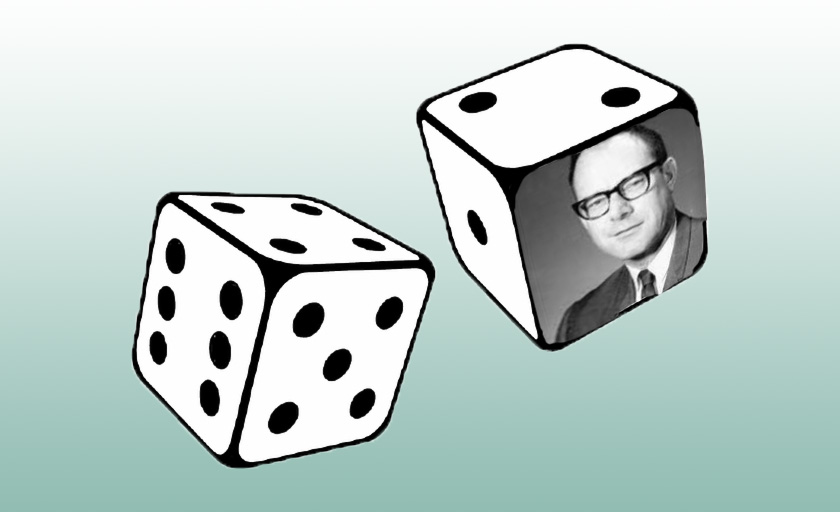We’re away until January 6, but we’re reposting some of our favorite pieces from 2019. Enjoy your holiday!
On September 24, 1980, a man wearing cowboy boots and carrying two brown suitcases entered Binion’s Horseshoe Casino in Las Vegas. One suitcase held $777,000 in cash; the other was empty. After converting the money into chips, the man approached a craps table on the casino floor and put everything on the backline. This meant he was betting against the woman rolling the dice. If she lost, he’d double his money. If she won, he’d lose everything. Scarcely aware of the amount riding on her dice, the woman rolled three times: 6, 9, 7.
“Pay the backline,” said the dealer. And just like that, the man won over $1.5 million. He calmly filled the empty suitcase with his winnings, exited Binion’s into the desert afternoon, and drove off. It was the largest amount ever bet on a dice roll in America.
“Mystery Man Wins Fortune,” the Los Angeles Times reported. No one knew the identity of the fair-haired young Texan who’d just made history, and so he became known as the “Phantom Gambler.” “He was cool,” said Jack Binion, president of the Horseshoe. “He really had a lot of gamble in him.” But it would be years before the phantom would be seen in Vegas again.
from The Paris Review https://ift.tt/35XrME4

Comments
Post a Comment